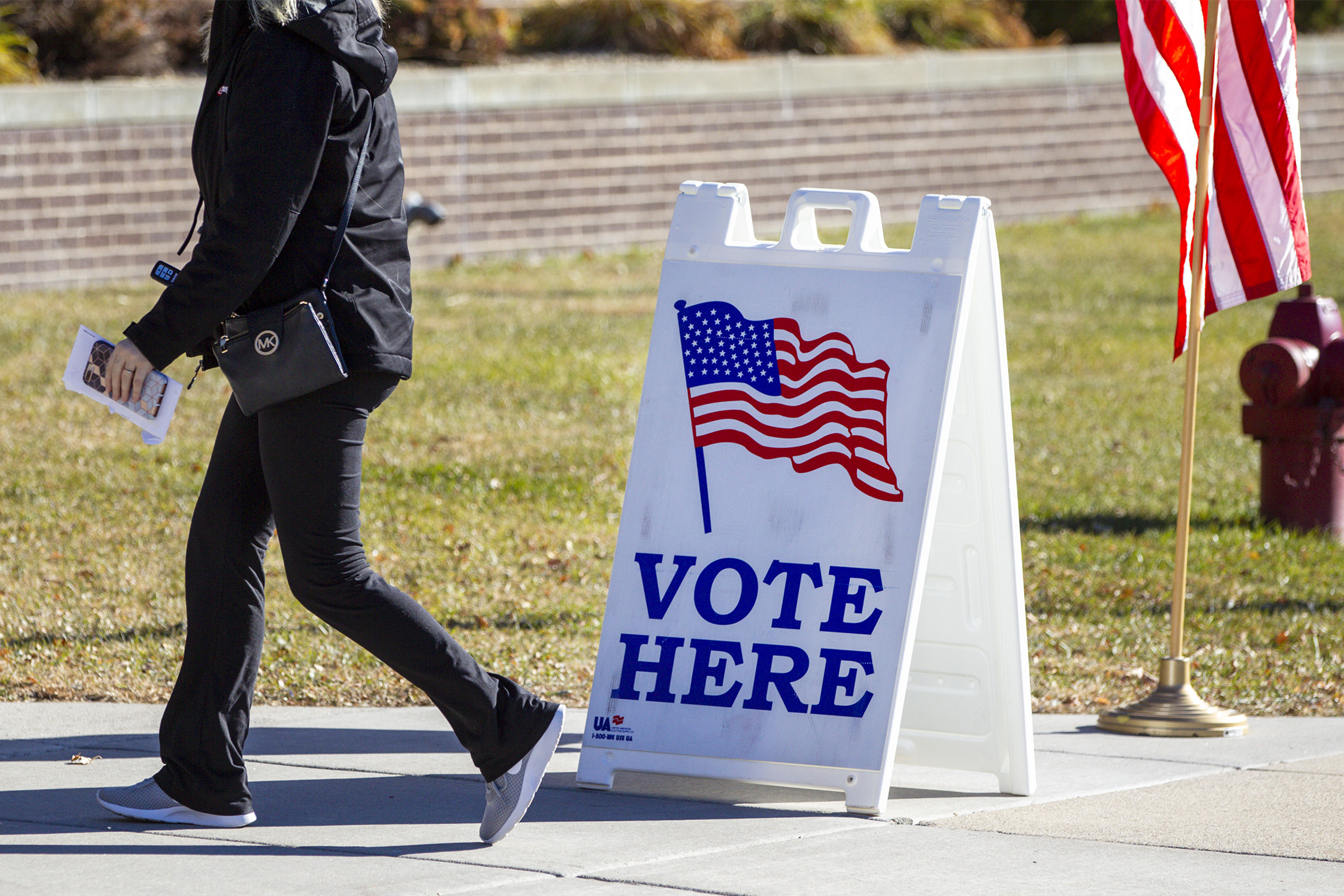Opting in or out? Proposal aims to provide easier voter registration

A U-turn when getting a driver’s license could affect participation on Election Day.
“Watch the next time you (take a driver’s test). You take the eye chart test, you fill out a bunch of papers, and there’s a piece of paper in front of you that says ‘check the box if you want to be registered to vote,’” said Secretary of State Steve Simon. “All this would do functionally is reverse the presumption.”
“This” is HF607.
Sponsored by Rep. Kristin Bahner (DFL-Maple Grove), it would, as amended, provide the widely termed ‘automatic voter registration’ by establishing a process whereby an applicant for a new or renewed driver’s license, instruction permit or state identification card registers to vote, or has their registration updated, unless they opt out. Other governmental agencies could provide the same service.
It was held over Friday by the House State Government Finance and Elections Committee until an updated fiscal note is prepared. Its companion, SF1104, sponsored by Sen. Aric Putnam (DFL-St. Cloud), awaits action by the Senate State Government Finance and Policy and Elections Committee.
Calling the process automatic is misleading, Bahner said, because once an application is submitted, it would begin a “robust” set of checks and balances to verify one’s eligibility to vote. Examples include matching the last four digits of your Social Security number, verifying your address, checking to ensure you’re not registered to vote in another state and ensuring you haven’t been reported as dead.
“It’s like multi-factor authentication on steroids. And it gives a whole new meaning to trust but verify,” she said.
Since March 2015, 25 states and the District of Columbia have enacted automatic voter registration, Simon said. “Red states, blue states, red governors, blue governors, legislatures of all kinds. And I think the reason for that is it is a much more simple, accurate and secure way of operating a voter registration system.”
Based on results in other states, Simon said the change would result in a “drastic, drastic” reduction of same-day voter registration, potentially 80% or more. It would therefore address an issue for many Republicans who question the lack of verification of someone who registers to vote at a polling place on Election Day and then casts a ballot. If that person is later found ineligible to vote there is no way to tell which ballot they cast.
“This is a way to get more people into the system earlier. Not on game day, but weeks and months earlier into the system so the screening and filtering can be done at an earlier time,” Simon said.
Rep. Jon Koznick (R-Lakeville) believes a person should have to opt-in, rather than automatically being registered simply because they apply for a driver’s or fishing license.
“When we introduce bills that take away the individual responsibility to participate in our elections more so than what we have now, I don’t know that that contributes to the sanctity of the vote and instilling the confidence that I think we need to instill into our election systems to make sure that our constituents do have confidence that the election results are valid and not questioned, and their vote counts as much as anybody else’s. I don’t know if this bill instills that confidence.”
Responded Bahner: “The only thing this bill does is essentially ensure the security up front to make sure that we are vetting to make sure that you are who you say you are, you live where you say you live, and you are in fact an eligible voter. It does not require you to vote. You still have to step up and do your civic duty and show up at the polls.”
Related Articles
Search Session Daily
Advanced Search OptionsPriority Dailies
Speaker Emerita Melissa Hortman, husband killed in attack
By HPIS Staff House Speaker Emerita Melissa Hortman (DFL-Brooklyn Park) and her husband, Mark, were fatally shot in their home early Saturday morning.
Gov. Tim Walz announced the news dur...
House Speaker Emerita Melissa Hortman (DFL-Brooklyn Park) and her husband, Mark, were fatally shot in their home early Saturday morning.
Gov. Tim Walz announced the news dur...
Lawmakers deliver budget bills to governor's desk in one-day special session
By Mike Cook About that talk of needing all 21 hours left in a legislative day to complete a special session?
House members were more than up to the challenge Monday. Beginning at 10 a.m...
About that talk of needing all 21 hours left in a legislative day to complete a special session?
House members were more than up to the challenge Monday. Beginning at 10 a.m...